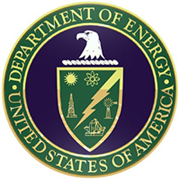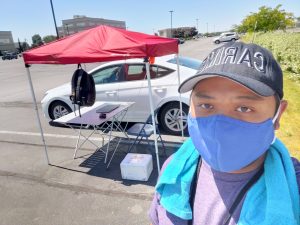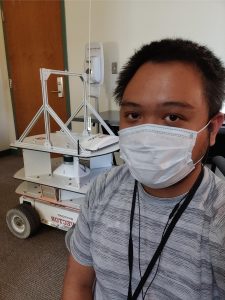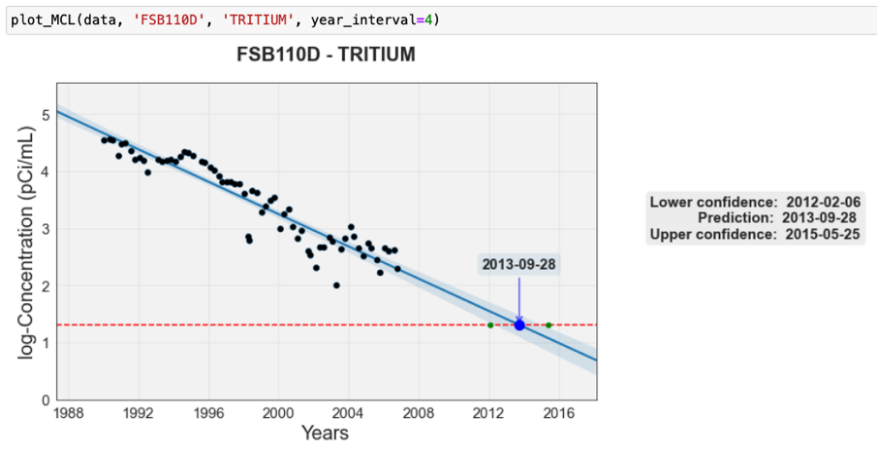COVID-19 has certainly changed how we live, study, work and interact with others. In spite of the challenges presented due to the pandemic, Florida International University’s DOE Fellows successfully started their summer 2020 internship programs at various national laboratories and Department of Energy (DOE) contractors across the country. A total of 8 DOE Fellows initiated remote and hybrid (remote and on-site) internships working with their mentors on topics related to robotics, environmental monitoring, high-level waste and machine learning/artificial intelligence across the DOE complex.
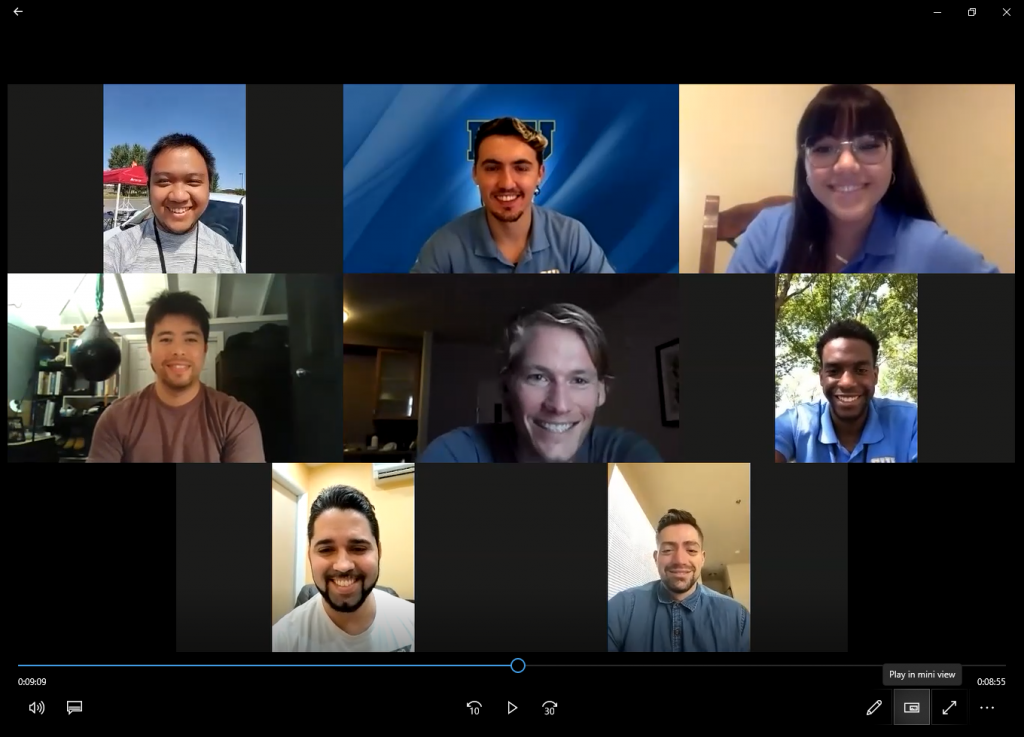
Florida International University’s DOE Fellows participating in summer internships across the DOE complex: (Top: left to right) Jeff Natividad, Aurelien Meray, Gisselle Gutierrez, (Middle: left to right) Juan Morales, Michael Thompson, Christopher Excellent, (Bottom: left to right) Roger Boza, Edward Nina.
Brief summaries of the various projects the DOE Fellows are supporting during their summer internships are described below:
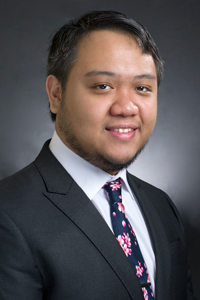
Jeff Natividad (Mechanical Engineering)
DOE Fellow Jeff Natividad (Inducted on 2019) is currently participating in a hybrid internship at Washington River Protection Solutions (WRPS) in Hanford, WA under the mentorship of Alexander Pappas. He is currently working on developing and validating semi-automated and automated robotic systems for use as part of a condition monitoring system. He is also assisting the Chief Technology Office with daily activities involving maintenance, repair or modification of existing robotics equipment to suit the tasks given. Jeff is developing experimental autonomous workflows and assisting in the development of automated instrumentation equipment. The process of maturing technologies, such as automated robotic routines, allows for the increase in safety and efficiency within the Hanford mission by reducing on-site exposure and allowing for the remote monitoring of key equipment and structures.
- DOE Fellow Jeff Natividad working on autonomous robotic platform at WRPS
- DOE Fellow Jeff Natividad working on autonomous robotic platform at WRPS
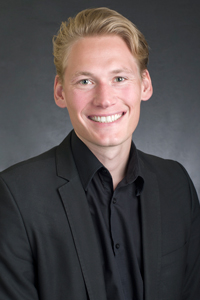
Michael Thompson (Electrical Engineering)
DOE Fellow Michael Thompson (Inducted on 2019) is currently participating in a hybrid internship at Idaho National Laboratory (INL) under the mentorship of Senior Research Scientist Ahmad Al Rashdan, working on flight control systems for autonomous indoor drones. The goal of the internship project is to automate routine security inspection and data collection from analog gauges to reduce the use of human labor for menial tasks, such as data logging. Michael is working on the control system implementation and drone autopilot code that will allow it to navigate indoors and in tight spaces by using image recognition of QR codes to determine its location instead of relying on GPS or other sensors. This will allow the technology to be easily implemented with commercially available drones without any special modifications as most already are equipped with cameras and have APIs for app development.
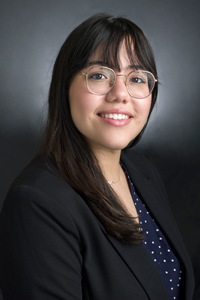
Gisselle Gutierrez-Zuniga Environmental Engineering)
DOE Fellow, Gisselle Gutierrez-Zuniga (Inducted on 2019), is currently participating in a remote internship at the U.S. DOE Carlsbad Field Office (CBFO) under the mentorship of Dr. Anderson L. Ward, working on developing a web-accessible public database for meteorological data for the Waste Isolation Pilot Plant (WIPP) site with the objective of releasing a Climatological Summary Report for WIPP. This will be achieved through the development of a Python program to automatically process archived data dating back to the 1970s, parsing metadata, substituting NOAA data for missing data, and generating ASCII files of observations for storage. Gisselle will then use this database to calculate statistics, including normals and return intervals, which will be the basis of a Climatological Summary Report for WIPP, of which she will be co-author. She will also serve as reference for the CBFO and DOE of the historical monthly and annual data of WIPP from its start to present.
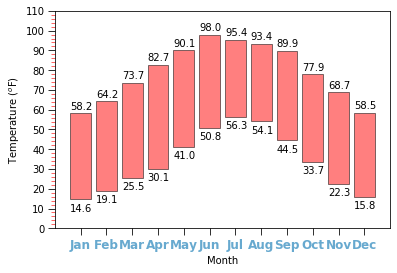
Figure 1. Example of historical temperature data.
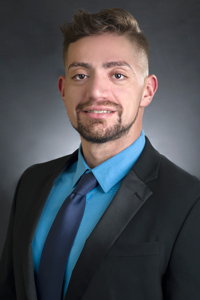
Edward Nina (Mechanical Engineering)
DOE Fellow Edward Nina (Inducted on 2019) is currently participating in a hybrid internship at WRPS. Under the mentorship of Jeremy Belsher, Edward is working on computational fluid dynamic modeling of several different projects. The objective of the project is to improve efficiency of these existing models as well as create new models for new projects. Currently the modeling of a supernatant with diluted water as an inlet is being examined, which uses a kappa-epsilon method with an automatic meshing. Local refinement will be done to make a finer mesh around the walls and the turbulent region while a more coarse mesh will be used for bulk of the system. Other turbulent models such as kappa-epsilon and algebraic y+ will also be examined in order to trade off computational efficiency with accuracy. These enhancements will improve both computational cost and time. In another project, Edward is simulating the flushing procedure of internal pipe flow. The same methodology will be used for this project, but the kappa-omega model will be used due to the no-slip wall conditions.
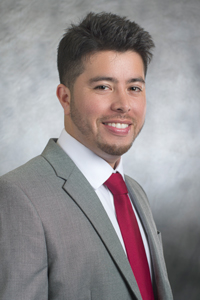
Juan Carlos Morales (Public Health)
Juan Morales (DOE Fellow, Inducted on 2016) is currently participating in a remote internship under the mentorship of Dr. Katrina Waters – Division Director for Biological Sciences at Pacific Northwest National Laboratory (PNNL). The objective of his research is to test a molecular framework measuring nrf1 environmental stressor transcriptomic gene signatures in assessing the impact of heavy metals in surface waters. Notably, molecular indices to measure heavy metals in surface waters are currently unavailable. He is motivated to design a viable alternative to chemical testing using zebrafish transcriptomics for biomonitoring of aquatic environments. Juan is learning critical bioinformatic and machine learning skills to enable progress on his dissertation research. This includes, the ability to test his hypothesis and group a fate and transport model evaluating changes in hydrology, sediment transport and biological effects in the remediated surface waters of Tims Branch Watershed (TBW), Savannah River Site. This research has the potential to assist DOE-EM greatly and aid Environmental Monitoring/Risk Assessment applications.
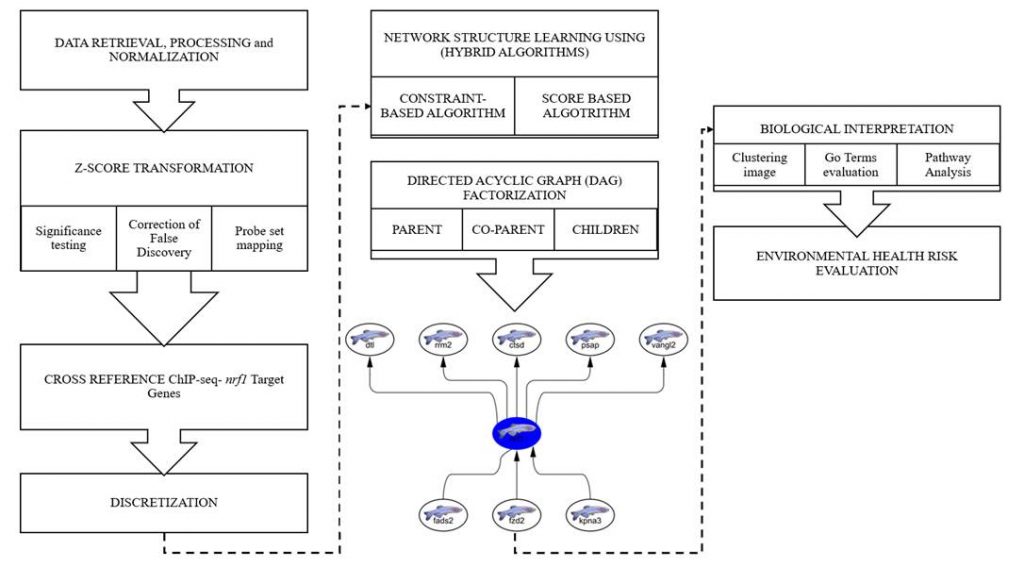
Figure 2. Assessment of remediation of heavy metals in water through measuring nrf1 environmental stressor transcriptomic gene signatures.
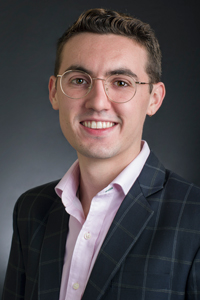
Aurelien Meray (Computer Science)
DOE Fellow Aurelien Meray (Inducted on 2019) is currently participating in a remote internship with Lawrence Berkeley National Laboratory under the mentorship of Dr. Haruko Wainwright, working on developing a Python package for analyzing groundwater contamination data. The goal of this project is to build a package to help on-site leaders and scientists make decisions about DOE contaminated groundwater sites by quickly and easily visualizing the data.
Example functions that have been approved and completed:
- The function plot_MCL plots the linear regression line of data given an analyte name and a well name. The plot includes the prediction where the line of best fit intersects with the Maximum Concentration Limit (MCL), which varies for each analyte.
- The function plot_correlation_by_date plots the correlations with the physical plots as well as the correlation values of the important analytes for all the wells on a specified date.
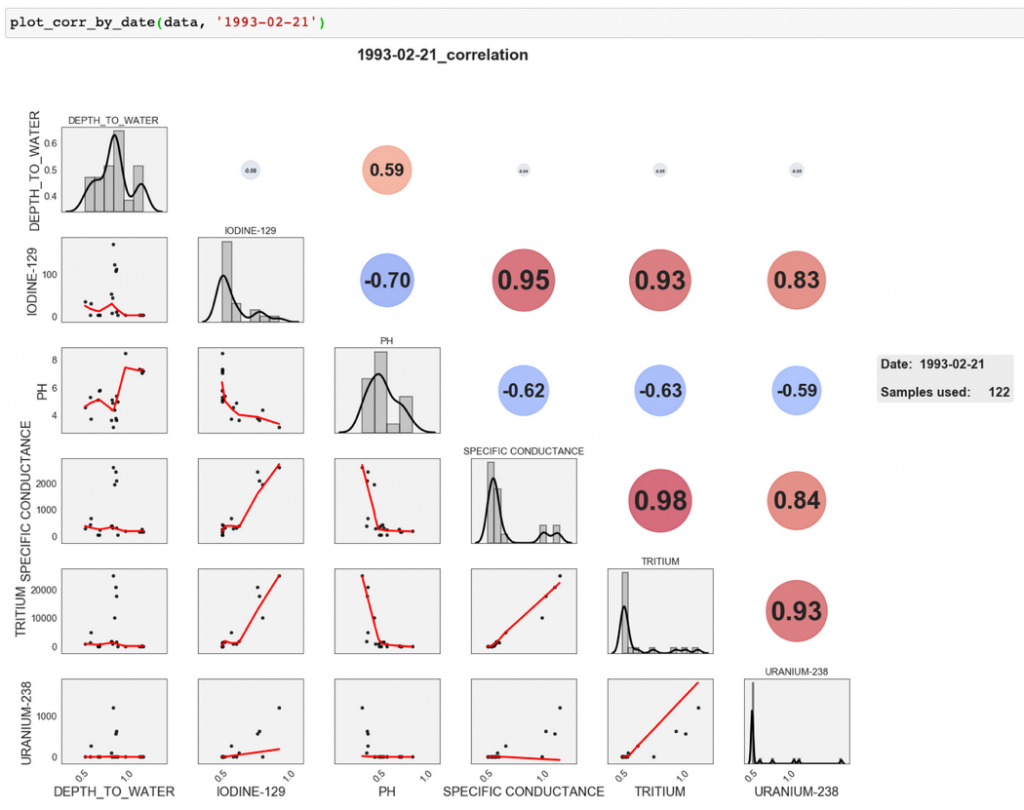
Figure 4. Plotted correlational analysis results for a specified date.
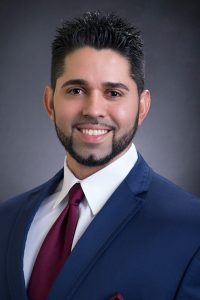
Roger Boza (Computer Science)
This summer DOE Fellow Roger Boza (Inducted on 2018) is participating in a remote internship at INL. Under the mentorship of Dr. Ahmad Al Rashdan and Mr. Mike Griffel, Roger is working on a computer vision project focused on the implementation of Artificial Intelligence (AI) networks for image processing and object detection. The goal of the project is to get a quadcopter (drone) to navigate autonomously around a nuclear reactor facility. Since GPS navigation is not a viable solution, the drone relies on an AI network to detect quick response codes (QR codes) in its field of view for positional information and navigational decisions. The drone uses the QR codes to follow a flight path, like breadcrumbs, until it reaches its destination and reads information from sensors/gauges. This project will streamline the data collection procedure for sensors around the nuclear facility.
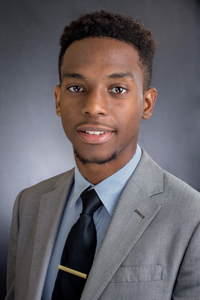
Christopher Excellent (Mechanical Engineering)
DOE Fellow Christopher Excellent (Inducted on 2017) is currently participating in a hybrid internship at INL. Under the mentorship of Steven E. Egan, Christopher is working on the Mobile Hot Cell (MHC) project that is being designed to support end of life radioactive sources by making the process faster and more efficient. The current processes that are in place to remove such sources are typically costly and time consuming. This project will utilize robotics and sensors, as opposed to the traditional manipulators used in mobile hot cells, to create a system that can be deployed rapidly, perform accurately, and complete tasks in minimal time through robotic automation. INL’s MHC project will also utilize cameras to remove the need for windows and all the requirements and procedures that come along with them, therefore adding to the efficiency of the MHC. Christopher will contribute to this project by applying his robotics/mechatronics skills on various parts of the MHC project.
Tags: Internships
